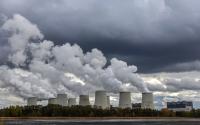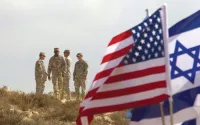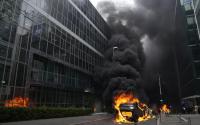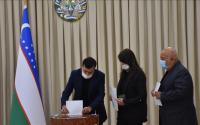The Nation, September 17, 2001
Given my filing deadline, I'm writing this column last Friday morning--seventy-two hours after the historic, heart-stopping and thoroughly nauseating terrorist attacks on the United States. Like you last Friday, I don't yet know the precise death or injury count, much less what the United States proposes to do in response, or to whom and with what rationale or justice. And like most Americans, I'm still in something of a state of shock--saddened, angry, worried about friends from whom I still haven't heard, worried more about what my country may be about to do to itself and others--if also oddly calmed and focused by what seems clearly the beginning of a long war.
So much has already been said about the events of September 11 that saying more risks saying nothing. And pretending to say something when really nothing can be said can actually obscure the truth, which here is that we now stand before a chasm of political uncertainty the likes of which none of us has even seen before, much less crossed. Tuesday's events clearly change our world, and mostly in bad ways, but having led reason to that precipice they abruptly turn away as guides. Speculating on what comes next is only speculation, at once empty and somehow inappropriate to this moment's sorrow. Nor can it be more than speculation, or should it be, since what comes next should be a political decision made only after a thorough national, and international, debate that has not yet even started.
Despite this, an establishment consensus has already formed on the task at hand. That is to destroy, by root and branch, the terrorist infrastructure that platformed this attack. The "enemy" is not just some group of vengeful maniacs. It also is those governments that support or even tolerate them. Here the current list is long--Iraq, Libya, Sudan, and Syria, as well as Afghanistan, with combined civilian populations of better than 160 million--and may always be extended.
September 11, we are told, did not just remind us of our vulnerability. It also ended the innocence, even wrongness, of living the purposeless peace we briefly did after the end of the cold war. In fact, peace, like freedom, is a constant struggle, which requires an enemy to struggle against. And today the enemy must be named as terrorism, or more broadly as any who might disrupt the spread of "open societies"--characterized by procedural liberty and the free movement of investment, people and goods. To those who would we must now say, in John McCain's latest soundbite, "May God have mercy on you, because we will not."
But it seems to me that all this begs a prior question, which is whether we should accept this definition of our national purpose in the first place--or if not, what other we are prepared to offer in its place. Answering that question requires an extended conversation with ourselves, not just a leap to "get even."
I believe we should insist on that conversation, and insist as well on the relevance of at least two observations not included in the establishment consensus. Both are entered here, I emphasize, without any intended diminution of all the good the United States has done in the world, or any diminution of the inexcusable terror of what has just been done to us.
The first is that our own government, through much of the past fifty years, has been the world's leading "rogue state." Merely listing the plainly illegal or unauthorized uses of force the US was responsible for during the long period of cold war, and continued during the past decade of "purposeless peace"--assassinations, engineered coups, terrorizing police forces, military invasions, "force without war," direct bombings, etc.--would literally take volumes. And behind that list reside the bodies of literally hundreds of thousands, if not millions, of innocents, most of them children, whose lives we have taken without any pretense to justice.
As Amnesty International summarized in the mid-nineties: "Throughout the world, on any given day, a man, woman, or child is likely to be displaced, tortured, killed, or 'disappeared', at the hands of governments or armed political groups. More often than not, the United States shares the blame."
And as Auden wrote in "September 1, 1939," as World War II commenced:
I and the public knowWhat all schoolchildren learn.Those to whom evil is doneDo evil in return.
That--if only in the tiniest of measures--the immediate relatives and descendants of our own terror now comprise or tolerate a group of maniacs intent upon a similar destruction of innocents in the United States should be mourned, and must enrage, but it cannot shock. And simply doing more now of what we have done in the past cannot be thought a solution to our security problems, much less a guardian of our souls.
The second observation is that any real security depends on the active generation of peace and public safety, not just their protection. It requires institutions more nurturing than the military or police, and arrangements more respectful of human life than the barren rules of an "open society." But for more than a generation now, we have sought public safety in the US more through force than reason, and incarceration more than economic opportunity. And we have sought it abroad through a mindless confidence that "free" markets are the best guarantors of human happiness.
Today we see the fruits of this. At home a prison population that has swollen in that time from a few hundred thousand to better than 2 million, once great cities whose centers have largely rotted out, a society where inequality and privilege stand on their highest peaks in history. Abroad: a community of nations, indeed more procedurally democratic than before, but with less real ability to control their destiny before the amoral workings of profit-seeking capital.
This path too cannot be indefinitely continued if the United States is to be free of the threat of terrorizing violence--whether dressed up as a moral or political crusade or not, whether emanating from abroad or, as more commonly the case so far, from within our own population. The implications of this point apply much more broadly than to airline safety, though they might start even there--where ill-trained and poverty-wage workers now improbably stand as our first line of defense against hijacking, and a deregulated industry operates without enforcement of engine safety standards, with pilots and flight crews often paid little more.
Along with more bodies, I hope that in Tuesday's rubble we also find the ability, as a people, to speak candidly of these things among ourselves. And I do not believe that this hope is irrational. Often, just after the crash of spectacular violence, there is a moment in which there's a collective intake of breath, and quiet interrupts the noise. This is one of those moments. And as awful as what produced it is, we must also make sure that it continues uninterrupted--for however long it takes us as a nation to have that conversation.






